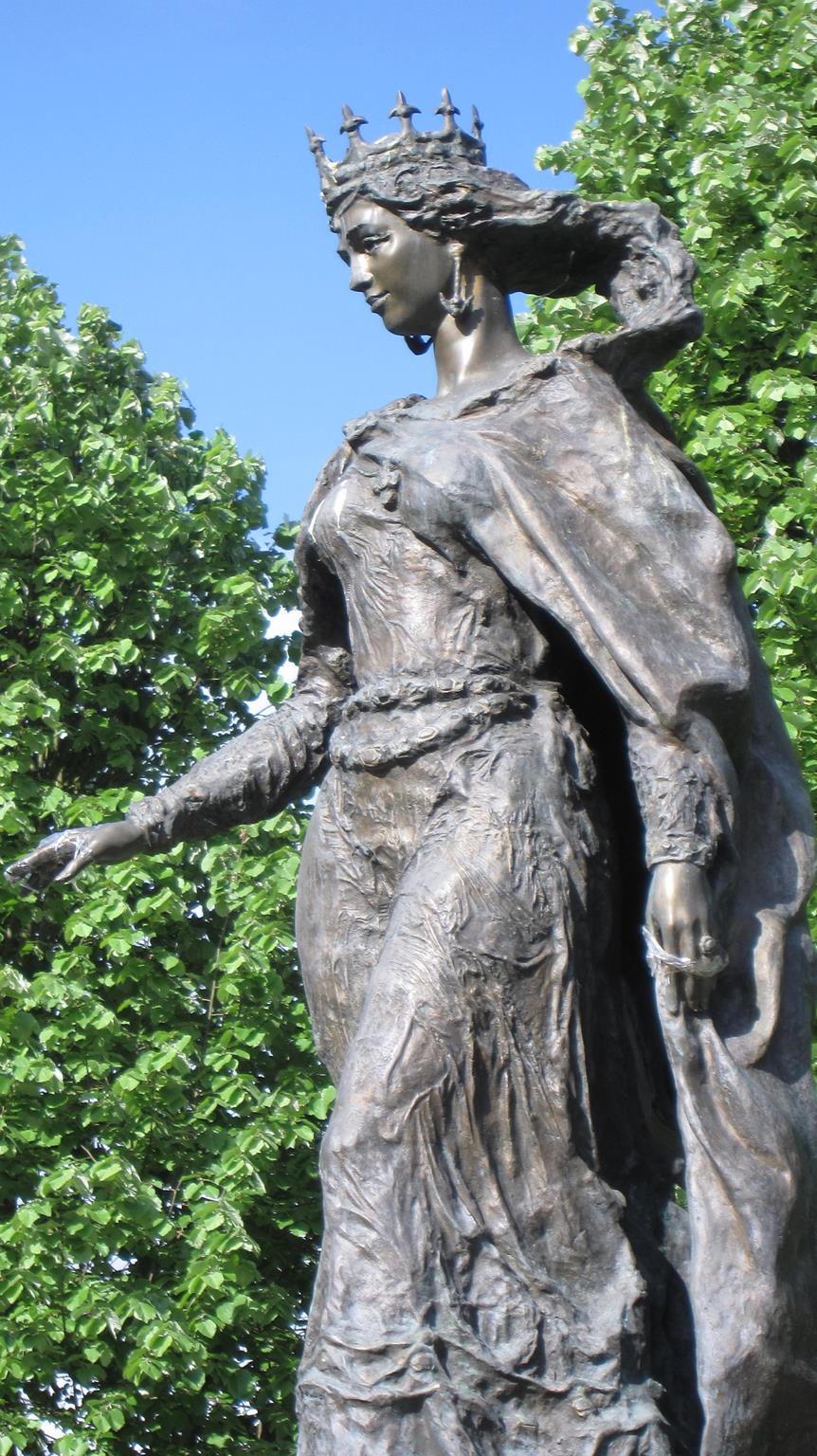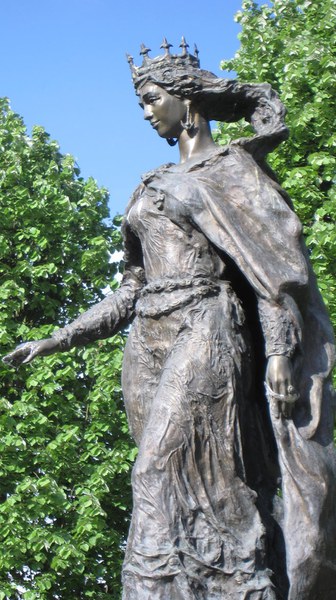In 1051, Anna Yaroslavna (d. circa 1075/1079), the daughter of Yaroslav the Wise of Kyiv (d. 1054) and Ingegerd of Sweden, was crowned Queen of France in Reims Cathedral during her marriage to King Henry I (d. 1060). This extraordinary long-distance marriage alliance linked Henry I's Capetian dynasty of France with the ruling clan of early Rus’ and led to Anna ruling France as co-regent during the minority of her son Philip I (d. 1108). Since the early twentieth century, Anna Yaroslavna’s reign has wielded enormous influence over Ukrainian popular and scholarly imagination. Some two hundred popular works devoted to Anna Yaroslavna exist, in addition to a 1969 Ukrainian opera and several recent television biopics. This talk will begin by discussing some of the major surviving medieval narrative and documentary sources on Anna Yaroslavna’s reign before turning to key examples of post-medieval Ukrainian retellings of her life. The presentation thus critically examines how and in what contexts Anna Yaroslavna’s story was told and retold for Ukrainian audiences. It will consider such questions as: What purpose did the fictionalizing and retelling of her reign serve? How does Anna’s life story inform Ukrainian constructions of both the medieval past and of aspirations for further future integration with Europe? Investigating sources and retellings of Anna Yaroslavna’s life offers unexpected insights into Ukrainian understandings of its medieval relationship with France and with the West.
Talia Zajac (PhD, University of Toronto, 2017) is a Leverhulme Early Career Fellow at the John Rylands Research Institute and Library, University of Manchester, UK. She is currently working on the research project titled, “Royal Women, Cultural Exchanges, and Rus’ Ecumenical Marriages, circa 1000 –1250”, which examines the political, patronage, and diplomatic roles of royal brides from Kyivan Rus’ at Latin Christian (Catholic) courts in the eleventh to mid thirteenth centuries. Previously, Zajac has pursued this research as an Andrew W. Mellon Post-Doctoral Fellow at the Pontifical Institute of Mediaeval Studies, Toronto, Canada (2020– 2021) and as an Eugene and Daymel Shklar Research Fellow at the Harvard Ukrainian Research Institute (2018).
Zajac has published on re-naming of Latin Christian brides in Pre-Mongol Rus’ in Byzantinoslavica (2020), on the social and position of princesses within Rus’ in A Companion to Global Queenship, edited by Elena Woodacre (Arc Humanities Press, 2018) as well as articles on Anna Yaroslavna and on Anastasia Yaroslavna in the Royal Studies Journal (2016) and in the volume Moving Women, Moving Objects (400 –1500), edited by Tracy Chapman Hamilton and Mariah Proctor-Tiffany (Brill, 2019). In addition to her academic publications, she also engages in creative work. Her trilingual (French, Ukrainian, English) libretto for the oratorio Golden Harvest, set to music by composer Larysa Kuzmenko and celebrating the 125th anniversary of the settlement of Ukrainian-Canadians, won the Anna Pidruchney Award for New Writers in 2016.
Sponsors and Endorsers: Dumbarton Oaks | Princeton University | Boise State University | Tufts University College Art Association (CAA) | Byzantine Studies Association of North America (BSANA) | Society of Historians of Eastern European, Eurasian and Russian Art and Architecture (SHERA) | Centre for Medieval and Early Modern Studies, University of Kent | Historians of German, Scandinavian, and Central European Art (HGSCEA) | British Association for Slavonic and East European Studies (BASEES) | International Center of Medieval Art (ICMA) | Renaissance Society of America (RSA)

